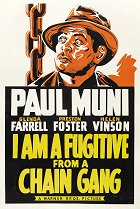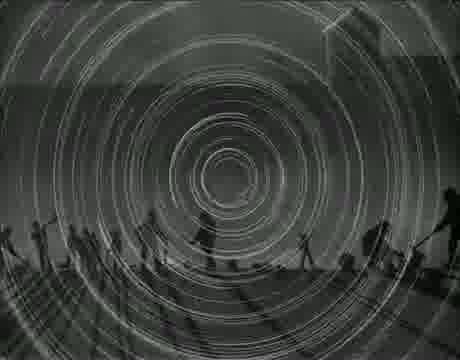Rendező:
Mervyn LeRoyOperatőr:
Sol PolitoZeneszerző:
Bernhard KaunSzereplők:
Paul Muni, Glenda Farrell, Helen Vinson, Noel Francis, Preston Foster, Allen Jenkins, Berton Churchill, Edward Ellis, Hale Hamilton, Sally Blane (több)Tartalmak(1)
A háborúból hazatért James nem akar visszamenni régi munkaadójához, szabadabban szeretne élni, mint korábban. Ezért nyakába veszi az országot és a legkülönbözőbb helyeken vállal munkát, de kevés sikerrel. Egyre lejjebb csúszik, míg végül egy rablógyilkosságba keveredik. Embertelen körülmények között tengődik a georgiai kényszermunkatáborban, nem sokkal később meg is szökik. Ezúttal mellé szegődik a szerencse: egyre feljebb jut a társadalmi ranglétrán, de "súlyos titka" révén kiszolgáltatottabb, mint valaha... (MTV)
(több)Videók (1)
Recenziók (3)
Mervyn LeRoy evidently had a weakness for crime stories and knew how to choose actors who were perfectly suited for them. Paul Muni has the perfect face for a criminal, even one who has a human side, as in this case. The story has an interesting arc of character development and how the character gradually navigates through the plot. The film is worth watching just for that alone. That it feels a bit contrived by today's standards is simply the result of its age.
()
Outstandingly distinctive filmmaking, plot-driven, thought-provoking, formally very naturalistic and even (and what I appreciate the most in classic Hollywood films) very strong emotionally. The dynamic direction is flawless, and in addition to the professionally and rhythmically shot escape sequences, it also impresses with cleverly thought-out plot shortcuts (shots on a map showing the main character's journey, or on an employee card showing her career rise and increasing income), Paul Muni is a tremendous character and wins everyone's sympathy, and the screenplay works both as a gripping crime drama about the will to defy adversity, but also as a sharp social and political satire. For me, quite possibly the best sound film of the 1930s, or at least of the ones I've seen so far. 100%
()
Another enlightening lesson for those who consider “classic Hollywood” to be a synonym for slow, chatty films with a surfeit of storylines. If his book, published shortly before the film’s premiere, is to be believed, Robert Elliot Burns went through the same thing that James Allen goes through in the film. The great-grandfather of escape dramas came out of the most daring of the major Hollywood studios in the 1930s, a time of economic and geopolitical crises, as part of a wave of social-critical dramas (e.g. City Girl, Fury, The Roaring Twenties). LeRoy’s impactful criticism (with some facts ironed out in the interest of such making such impact) resonated with viewers and led to the release of several convicts, including Burns himself. There is not a superfluous line in the film; what’s essential is conveyed by the expression on Muni’s face, which undergoes such a radical transformation over the course of the film that by the end there is nothing left to do but to utter those two famous words. At that moment, I fully understood what all was contained in them. 80%
()



Hirdetés